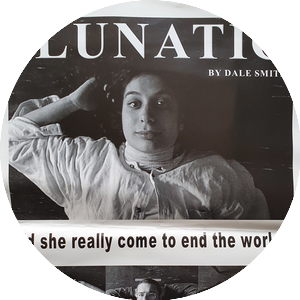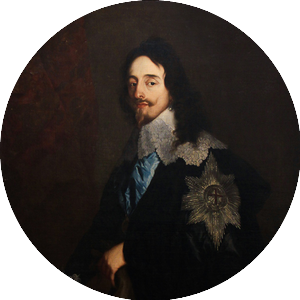Invitation
After I finished my degree in Drama at Manchester University, I was at a bit of a loose end. I couldn’t decide what I wanted to do next. But my tutor had an idea: he suggested I apply for the Post Graduate Diploma in Writing for Theatre course that the department ran, which came with a bursary that covered all the fees. The course would basically involve doing the writing course module I had taken in my third year again, and doing an internship somewhere relevant to see how writing worked in the real world. With no better ideas, I applied and was accepted along with two other students.
I didn’t, it had to be said, enjoy the course. But it did give me plenty of time for writing, and I had some hope for the internship when I was told it would be with the BBC. I lasted two weeks working as a runner on a day time magazine show that wouldn’t have even a hint of any writing done on it until they reached the studio floor. The department did seem quite put out when I told them the placement wasn’t suitable: a runner’s job at the BBC is the first step for any number of careers (including scriptwriter) and the other people to take the diploma – both past and present – had been glad of the opportunity. They had never had the situation where one of the students had been more interested in learning about writing than starting a career in television before.
For a while, it looked like I might fail the course because an alternative placement that actually met the requirement to teach me something about writing couldn’t be found. This would have been more of a problem for the university than me: having already worked as a writer, I knew that qualifications weren’t what producers and publishers were looking for. I’d started the course because the idea of leaving education scared me, but I knew the only way it could boost my career was if it made me a better writer. These days, it doesn’t appear on my CV.
But then, at the last minute, the Royal Exchange Theatre in Manchester started running a writers’ group. My recollection is that I brought it to the attention of my tutor and said it might be a good alternative to a placement, but it may be that the idea came from him. Regardless, it was the drama department who contacted the theatre and got me a place in the group. It ran weekly for two months, each meeting involving a number of writing exercises intended to lead us to producing a scene of a new play by the end of the course. The scenes were all to be showed in one night at the Royal Exchange Studio, and the writer of the best might be commissioned to turn it into a full play.
Inspiration
When I started going to the writers’ group, called The First Eleven, I’d been trying to write a SF-tinged play called The Prometheus Forge. It had been inspired by a number of popular press articles about cloning, and in particular their assumption that clones are identical. The thinking that had gone into it fed in Heritage, written at around the same time, but it was intended to be a much more intimate piece. The two main images I had in my head for the story were of a woman being woven on a loom in front of an audience, and a scientist repeatedly cloning the woman who has left him in the hope of finding a copy who will stay.
When I was looking for an idea to use for the First Eleven, the Prometheus Forge was the one that stuck in my head.
Getting the Story
The First Eleven sessions were led by the current writer in residence, which meant they knew just about as much about the Royal Exchange as we did. My fantasy of being told the big secret of how to get a play on there wasn’t realised. Instead, the sessions tended to focus on creativity exercises – little writing games to play that encouraged you to generate some words and so hopefully jumpstart your imagination and get you in the habit of writing regularly. One of these involved writing stories based on newspaper articles: some of the ones I wrote can be read in the related content section.
At the time, I really enjoyed the sessions and there was a real sense of a group coming together. With hindsight, I think that they weren’t really what I needed. Generating ideas and writing regularly have never been two of my failings, and so those sessions were geared to teach me something I didn’t need to learn. That isn’t the fault of the writing group: I couldn’t see it at the time, but what I really needed to do was spend some time on my own and work out what was stopping me from being a writer. If I could have worked out back then that I was waiting for somebody to hand me a writing career – for a publisher or a producer to say “Yes, you’re good enough to be a writer: come and work for me forever” – I would have realised that the kind of writing group I needed was one that was generating content for something. These days, it would be a podcast, or self-publishing, or a YouTube channel. But what I needed – what I still need – is to get out there and make myself a career.
Instead, when it came time to start thinking of our play, I did the opposite. Instead of writing what I thought was good in the way I thought it should work, I tried to work out how to make The Prometheus Forge the kind of play that the Royal Exchange would like.
The science fiction elements went out immediately, and instead the backdrop became a Manchester skyline at the end of the Millennium. I tried to make it urban and gritty, a modern melodrama in the kind of “authentic” edgy voice that I thought the theatre really wanted. But the biggest mistake I made was in trying to turn my idea into that even though I knew it wasn’t the kind of thing I really enjoyed writing; that if I’d seen the most perfect version of the play I was trying to write advertised, I wouldn’t under any circumstances want to go and watch it.
The first step in getting to the final play was to write a single scene to be performed in a showcase at the theatre. I picked my scene and dived in.
Outside Help
If you’re writing for performance, you can’t over-estimate just how much seeing someone perform your work will help you. When they had our scenes, the Royal Exchange put together a small ensemble of actors who were working on one of their other productions: they each took a scene or two and worked them up themselves for the performance. I don’t know if there was a director involved – I think there was, but the writing group were kept pretty separate from the rehearsal.
The scene I wrote was deliberately chosen to be the kind of thing I would write well: it came from the middle of the story, so wouldn’t need any establishing information; it featured two characters in conflict, with the impression of who was right shifting from one to the other; it represented a poetic lull between the action, meaning that any excesses or missteps in the plotting wouldn’t be visible; and – above all – it was dialogue heavy to play to my main self-perceived strength in scripting. Seeing it performed, I thought it stood up well against the other scenes and it gave me hope that I’d be able to expand it into an equally strong play.
What Happened Next?
After the performance, we were given another few weeks to finish off our plays and submit them back to the Royal Exchange for a “winner” to be selected. By that point, we should have had a good idea of the whole of our play and how it would work. We should have been doing the final rewrite of the script to bring in what we’d learned from watching a section of it be performed. But that wasn’t where I was. What I’d done was write a single scene designed to look good in performance, and based on a vague idea of what the whole story was.
I had a few weeks to reverse engineer an entire play from a single scene.
Worse: an entire play that I didn’t want to see.
I did manage to get a script written. It had a few moments in it that I liked. It even managed to look like it was moving towards the already written scene and then progressing onwards without seeming like a massive detour had been taken. But in removing the elements of the telling that I thought would be off-putting for the producer, I took out everything that made me interested in writing the play. There was no way that I could get anyone else to love the script enough to produce it, because I could barely get to the end of writing it.
I didn’t win. My play wasn’t chosen to be produced by the Royal Exchange, but then I wasn’t alone in that: none of the plays written by the First Eleven were produced, and in the end the play that was produced in the First Eleven slot was one written by another young writer who hadn’t taken part in the writers’ group. At the time, I told myself that it had all been a publicity stunt and the theatre had never been interested in finding a play from the First Eleven.
But I knew that wasn’t true.
Everybody who is putting out any kind of writing – from theatres to publishers to television studios – want to find something new and exciting to put out. None of them are lying when they say they want to read something that blows them away. But what that doesn’t mean is that they will take anything just because it is new: it has to be brilliant first, and after that everything else is incidental. The Royal Exchange wanted a brilliant new play to put on. They didn’t find one from the First Eleven – certainly I knew I hadn’t written it – and instead of just picking out the one that was at least better than the others, they went off and found a play they thought was brilliant instead.
If something you’ve written gets rejected, it isn’t because there’s a secret cabal of insiders working hard to keep new people away from the industry. It’s because what you wrote wasn’t good enough. So go back, rewrite it. Try again.
I didn’t. I decided that the kind of things I enjoyed writing weren’t the kind of things theatres wanted to produce. I sent a few more plays in to the Royal Exchange, but by the time I knew Skin Deep wasn’t going to be produced, I was busy writing Heritage. I switched into writing prose without having to think too hard about why I had struggled getting any more plays produced.


